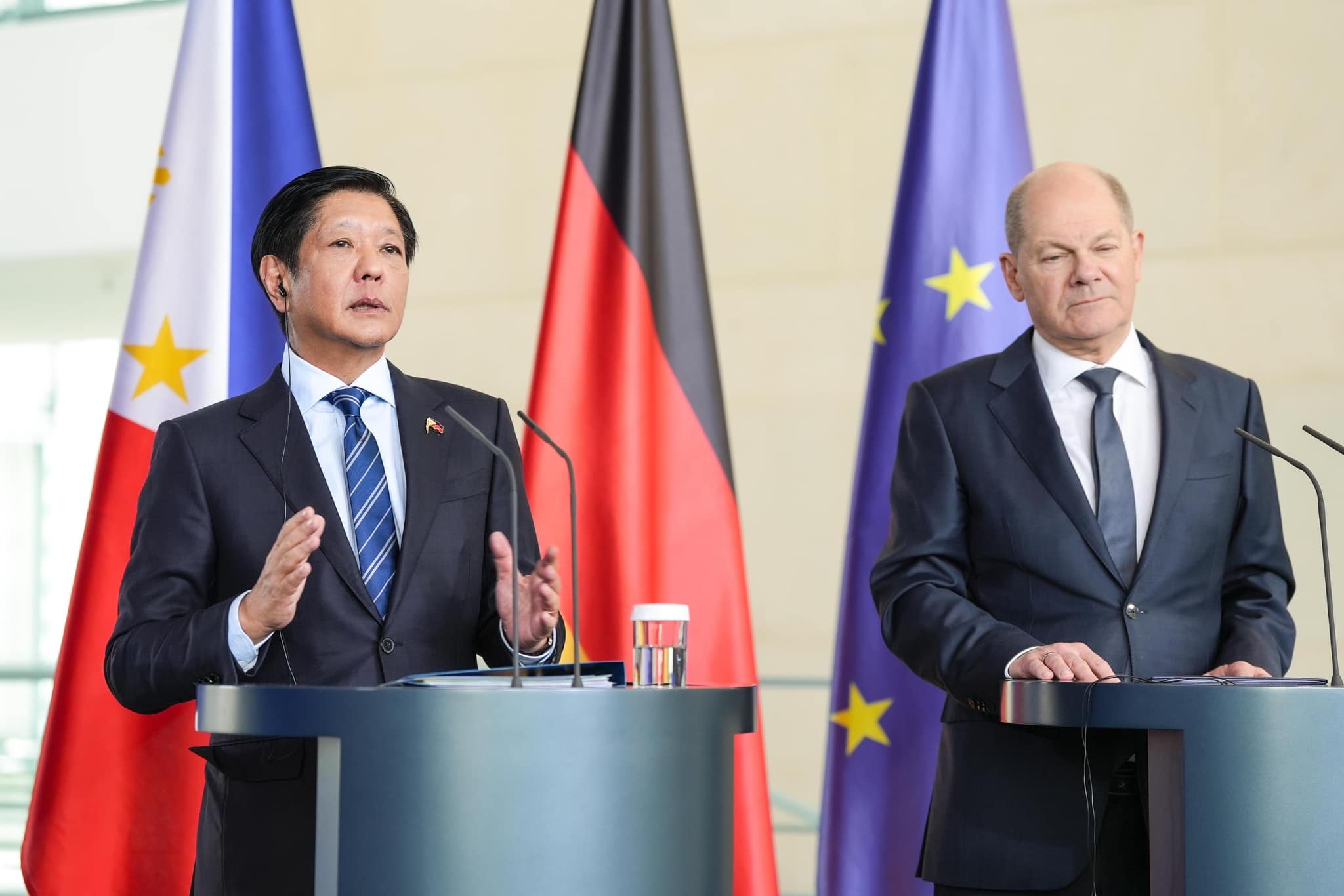
By Brian Jules Campued
President Ferdinand R. Marcos Jr. maintained that the government will not cooperate with the International Criminal Court (ICC) in its investigation on the war on illegal drugs campaign under the Duterte administration as it has no jurisdiction over the Philippines.
Marcos told German Chancellor Olaf Scholz in a bilateral meeting on Tuesday in Berlin that the country has a working judicial system that is capable of conducting its own probe.
The ICC’s apparent intrusion into the Philippine judicial process is a “mistake” since the country has a “functioning military and police force that uphold the rule of law”, the President stated.
“Well, there is now a conflict between – in terms of jurisdiction because, in our opinion, the ICC was created when a country has no judiciary, no functioning judiciary, no police force to enforce peace and order; enforce law,” he added.
Marcos said there is no need for the ICC to intervene, considering that “there are too many lawyers in the Philippines already”.
The Philippines formally cut ties with the ICC on March 17, 2019—a year after the country formally notified the United Nations of its withdrawal from the Rome Statute.
Meanwhile, the President also highlighted the progress the current administration has made in curbing illegal drugs as he introduced a different approach to address the problem.
He, however, recognized that the proliferation of illegal drugs in the Philippines remains a problem.
“It’s a big problem, but our approach has changed significantly,” Marcos told Scholz after the latter inquired about his approach to illegal drugs in relation to the previous administration.
“I [am] diametrically opposed to handling the drug problem in that way, by confrontation, by violence and it really requires so much, much deeper understanding of the problem and the much deeper solution. So, yes, I think that we are also progressing when it comes to that,” he said.
Notably, part of the reforms is the reorganization of the Philippine National Police (PNP) to rid the it of police officers involved “in some of the more nefarious practices” that were undertaken during the previous administration, according to Marcos.
“We are starting to move them out, and some of them have already been tried and convicted, now in jail and serving their time. It’s a difficult problem because the money involved is so much that it’s hard for the government to compete with the kind of money that’s been thrown around by the drug lords,” he added. – avds
